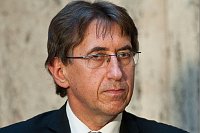 This is not intended as legal advice. Please always consult a lawyer if you are concerned about issues related to HIV non-disclosure or exposure. And do your own research!
This is not intended as legal advice. Please always consult a lawyer if you are concerned about issues related to HIV non-disclosure or exposure. And do your own research!
Some of the tactics suggested in this document are within a grey area of the law. Make sure you are aware of this, and make onlydecisions that you are comfortable with to protect yourself. We do notpromote non-disclosure of one’s HIV status, nor do we support the stigma that can make it so difficult to do so.
An anonymous collective of people living with HIV and our allies produced this document. We have no leaders, no spokespeople, and no meetings. Copy this, share it, add to it, and adapt it to your own setting. Join us by doing it. Time is running out.
*The photos in this document are from the July 1990 Montreal Sex Garage riots
Download booklet version here!
HOW TO HAVE SEX IN A POLICE STATE: OUR APPROACH
In 1983, Americans Richard Berkowitz and Michael Callen published the book How to Have Sex in an Epidemic: One Approach, which is credited as being the first piece of safer sex literature for gay men. In the early days of the AIDS epidemic and in the absence of state action people with HIV and their friends banded together and took things into their own hands. Through advocating the use of condoms and by sharing available HIV prevention information, safer sex in the late 80s and 90s was conceived as a way to take collective accountability for addressing the epidemic, care for one another, and resist fear-based and abstinence-only responses.
Thirty-years after the publication of How to Have Sex in an Epidemic we face a new type of emergency here in Canada. State neglect in the response supporting people with HIV is now coupled with intensified forms of state control, surveillance and criminalization. Canada is among the most punitive countries in the world for HIV-positive people, where the state is turning towards criminalization instead of public education and support.
WHAT YOU NEED TO KNOW: The “Law” in Canada
The landmark 2012 Mabior and D.C. Supreme Court decisions outline that people are required to tell a partner they have HIV before they engage in sex that poses a ‘realistic possibility’ of transmission. This legal test requires disclosure for vaginal intercourse unless a condom is used and the person with HIV has a “low” viral load. This decision did not address same sex relations, anal sex, or oral sex. Anyone who doesn’t disclose their HIV positive status when having sex with a condom OR low viral load can be arrested and prosecuted. Since this decision at the Supreme Court prosecutions are on the rise. The risk of being labeled a criminal is now biologically marked – we are infected with criminal potential. Acquiring a low viral load requires access to anti-HIV drugs, which are still out of reach for many of us. Condom use is also complex when power and gender-based violence are factors. Charges can range from assault to attempted murder and do not require HIV transmission to occur. A majority of people in these cases are charged with aggravated sexual assault, one of the most serious offences in the Criminal Code reserved for violent sexual assaults. Those prosecuted can face long sentences, are registered as sex offenders and held in segregation units. One accusation from an angry or upset former lover can result in lengthy court battles, incarceration and sensationalized media exposure. Even if the person decides to drop the charges, the state can pursue criminal prosecution in the “public interest”.
Within this context of intensified criminalization we see the reversals of hard-fought protections for our privacy and rights. Under the AIDS Industry’s “treatment as prevention” project, people living with HIV are now understood as carriers of disease who must be neutralized through medical treatment. This treatment imperative plays out regardless of if we have access to the expensive medications, if we can tolerate their many side effects, or even if there is a medical necessity to go on them. The fundamental principles underlying HIV testing (i.e. consent, confidentiality, and counseling) are rapidly disappearing. Voluntary and anonymous HIV testing are being replaced by involuntary and coercive forms of testing, now called “routinized testing”, where people can be systematically tested in health-care settings – many of them without their knowledge. The names and HIV-status of people who test positive can end up on government databases for life. Also, through increased public health oversight, community–based organizations have now become an arm of state surveillance, discipline and control. Many of them now fully endorse and implement new coercive testing approaches in the community.
What follows is a list of suggestions gathered by people living with HIV to help one another steer clear of the law and the state, to protect our communities and ourselves.
TAKE THE TEST & RISK ARREST
People who test HIV-positive will in most cases have this information collected by public health officials. In the early days of the epidemic activists and other people with HIV fought to have their information about their HIV-status be anonymous and out of the hands of state officials. Today things are different.
Today, in order to prevent intervention from the criminal justice system and public health officials it could technically be in your best interest not to know your HIV status. While this is still a grey area within the law, if you do not “officially” know you have HIV, then you could have less of a chance of being charged or prosecuted in relation to non-disclosure. Although, if you have engaged in activities that are commonly understood to put you at risk of HIV infection then you could have a legal obligation to disclose these activities to other partners. In 2003, a case went to the Supreme Court called R. v. Williams, and while the case did not fundamentally alter how the law is applied it did outline that if someone has an awareness of risk, then they have a duty to disclose, even if they are not aware of their HIV status. So we know that willful ignorance about your status is not going to keep you completely out of the courtroom if someone presses charges against you or the police and public health come knocking at your door. But being careful about where you get tested and who knows your HIV test results could prove helpful in some cases. You can order home HIV testing kits online, or buy them while travelling to other countries where they are available.
Avoid all HIV or STI tests at clinics where your real name is recorded. If you do not already know your HIV status, only go for anonymous tests (ensure the clinic you go to does not record your name, or any contact information), or get an at home test from across the border or online. The police and others can use medical records to confirm that someone has HIV, has been counseled about their status, is aware of their viral load etc. and that they are thus criminally liable regarding cases of non-disclosure. To prevent this from happening, try your best to keep your HIV status out of official state, public health, and AIDS service organization record keeping practices.
If you test HIV-positive through anonymous testing and you want to go to a doctor – ask your doctor if they do a confirmatory HIV test. Some doctors are mandated by public health to do a confirmatory HIV test, which will have your name attached to it. However, there are some HIV specialists that do not follow this mandate. Ask your friends and look for a doctor who will not submit your HIV status to public health. Sometimes a doctor needs to make sure you have HIV before they are willing to provide care. You can ask that they do a viral load test, as public health authorities do not as of yet collect this data. Having a record of your viral load can act as an equivalent to a positive HIV-positive test for you, and also for your doctor to provide appropriate care, while keeping you out of the public health database. But this strategy will not help if the medical records your doctor keeps are subpoenaed in the case of arrest.
If you are arrested on a charge in relation an HIV, do not tell the police your HIV status, or anything else without a lawyer. Do not volunteer any information to the police. It is important to try and get a lawyer who is knowledgeable on HIV exposure and non-disclosure cases, so that you can get an adequate defense. Legal HIV organizations have connections to knowledgeable lawyers who understand these sorts of cases.
FUCK SAFELY: HOW TO PROTECT YOURSELF
While we need to protect ourselves from public health and the state, we also need to protect ourselves from potential partners who may call the cops on us out of fear, lack of information or AIDS-phobia.
If disclosing is not possible, maintaining a low viral load and using condoms are the only way to comply with the law. But we know that both acquiring a low viral load and always using condoms is not possible for everyone. Also, there have been cases where people have been charged despite disclosing their HIV status to a sex partner, or have used condoms and had a low viral load. So if you are in position to do so, ask your partners to sign a statement agreeing that they know your HIV-positive status and have agreed to have sex with you. Alternatively, you can keep a record of having disclosed on your phone or computer. Take a screen capture of your disclosure on hook up sites. Remember to record the date and time. Recording your disclosure on a social media app is also a potential strategy. If possible, consider the idea of disclosing your status to person in front of a trusted witness, friend, or at a trusted counselor at a community organization.
We know that disclosure can result in violence or other consequences. In this case there are still things that you can do to protect yourself and your partners. If condom use is possible, some people will make sure to keep used condoms from past partners labeled and frozen in the freezer as evidence that the sex they had was protected. These are ridiculous measures, but these are ridiculous times.
If you have questions about safe sex, talk to people you know and learn about different ways to fuck safely. If you talk to a health care provider, ask general questions and don’t detail challenges that you may be having with disclosure and condom use. If you have questions about your legal duties, for example if the condom breaks, don’t ask a health care provider. Ask a person who is familiar with the law (there are organizations what work on HIV and the law in Canada, look them up online). Make sure the person you talk to does not document your concerns in your health records or some other form of record (like records they keep on clients at AIDS Service Organizations).
KEEP YOURSELF OFF THE PUBLIC HEALTH RECORD
The less information the state has on you the harder it will be for them to develop a criminal or public health case against you. This doesn’t mean that you shouldn’t notify people of your own status, but can be a strategy of keeping the state out of your sex life.
Sometimes public health officials do ‘contact tracing’ or ‘partner notification’ where they document who has come into contact with whom (or in this case, who has had sex with whom) to notify other partners of the potential “risk”. If you come into contact with public health officials who are doing ‘contact tracing’ tell them that you do not know the names of anyone you have had sex with. This collection of information by public health could later lead to potential criminal charges, a public health order, or other consequences. One strategy is to tell public health officials that you only have anonymous sex and that you do not know the names of any people you have sex with, or that you don’t have the means of contacting them.
If your HIV status is already recorded by public health, and you test positive for another sexually transmitted infection (STI), you could be asked to meet with a public health nurse. The nurse may ask you to give them the names of whom you have had sexual contact with. Never give names or contact information of other people to public health. Public health could contact them and notify them of your HIV status and that person could press charges if you have not disclosed to them.
Some public health officials can be very aggressive and stigmatizing towards people living with HIV and they may harass you once they have any of your contact information. If this happens, you can make an official complaint against them by contacting the health unit where they work.
Each province has its own public health department and health units. Some public health units are more concerned with regulating people living with HIV than others. Some provinces have public health laws that allow for the issuance of public health orders. Under public health law people can be mandated with legal orders to disclose their HIV-positive status to all sex partners in specific terms, practice sex in specific ways, or even be put under house arrest, as well as being court-ordered to take pharmaceuticals. To better protect yourself, know what public health jurisdiction you are in, and if they issue public health orders to people living with HIV.
If you receive a public health order, or get arrested call a lawyer right away! You often only have 15 days to respond to a public health order, and you will need a lawyer as soon as possible to support you in this process.
ACCESS SUPPORT NOT SURVEILLANCE
When going to a community organization, AIDS Service Organization or healthcare provider always ask any counselor, nurse, doctor, social worker, peer worker, or other support worker how, why, and under what circumstances they are professionally required to document their interactions with you, and if this data can be used to identify you. In many organizations, there is an increasing push to collect more and more information on people who access services, but this information can also be used against you. Anything they write down or collect about you can be subpoenaed and used as evidence in a court of law. Make sure that you trust your healthcare providers and they are transparent about how and why they keep records on you. Do not give out any information about your sex life, sex partners, HIV status or sex practices unless you are absolutely certain that they will respect your confidentiality and not document what you tell them. You can always request a copy of your file or any notes kept on you. Alternately, if you are disclosing to your sexual partners, you can ask your care provider to note this in your file to further protect yourself against accusations.
MAKE THIS AN ISSUE IN YOUR COMMUNITY
We are in a dangerous moment under the watch of a hostile regime and we urgently need to take back control of our lives, our health and our freedom. When possible, talk about HIV and talk about the potential impacts of HIV criminalization with friends, sex partners, colleagues, family and with communities that you are part of. Make it known that you are a person that other people can talk to about these issues. Work in your communities to build consensus at a grass-roots level to end the criminalization of HIV.
Police can pressure people in these cases into pressing charges. Refuse to be a witness and help prosecutions. Respect people’s decisions about disclosing. This complex social issue cannot be understood within – or reduced to – a legal and policing framework of “victim” and “perpetrator”. Work to undermine these practices that support criminalization. Encourage dialogue over calling the cops.
Be proactive and hold community organizations accountable. Call for AIDS Service Organizations, health-care providers, or other community groups to not participate in reporting or record keeping practices that could support HIV criminalization investigations. Ask these organizations to be transparent about what they do and what their policies are around reporting and collection of information. If they do not have policies or practices around this, push them to develop them. Ask community organizations, if their records are subpoenaed, to tell the cops to seal the evidence and instruct them that it can only be opened before a judge. This can buy you time to oppose the use of these records as evidence.
This issue is not over. There are opportunities for change if people start taking action now! As people living with HIV, we know this: We are responsible and we already practice care for the health of our sex partners. Now we must take action to protect ourselves from the violence of the state, the violence of the AIDS Industry, the violence of AIDS-phobia, and the violence of the criminal injustice system. As the carceral system becomes the watermark of our everyday life it is becoming clear that we are not the “public” that public health is interested in protecting. But we can protect ourselves if we work together, support each other, share strategies and push for change.
 Robert Hejzák, photo: Czech Television
Robert Hejzák, photo: Czech Television Vladimír Valenta, photo: Filip Jandourek
Vladimír Valenta, photo: Filip Jandourek
